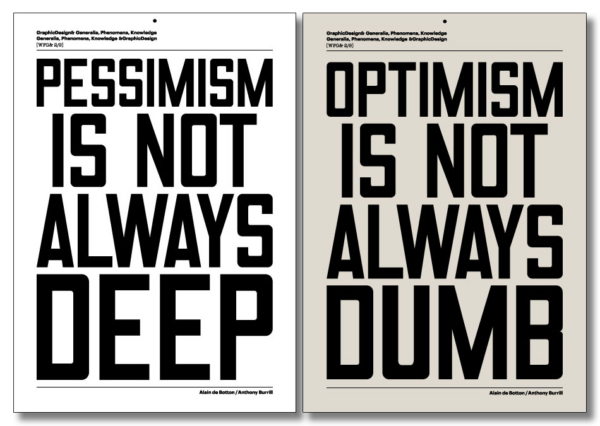
Posters by Alain de Botton and Anthony Burrill (on sale here).
Official website of the author

Posters by Alain de Botton and Anthony Burrill (on sale here).

I am heartened to learn there is a patron saint of writers, St. Francis de Sales. I suspect I am not the sort of writer St. Francis watches out for (atheist, lapsed Jew, author of wicked books). Nevertheless, in a pinch I may send up a prayer or two, just in case. No atheists in a foxhole.
Image: an 1867 medal of St. Francis de Sales (via).
We received a couple of very nice blurbs this week. I particularly loved this one from Lee Child:
Waiting for a new Landay novel is like waiting for a guy from Cremona to build a violin: anxious but worth it. Defending Jacob is smart, sophisticated — and suspenseful on more levels than one.
At the moment I am struggling mightily to get my next book started. I feel more like a guy from Hackensack building a ukelele. So thank you, Lee.
Author Stephen White also sent along this endorsement:
Nuanced understanding of the psychology of carefully considered, layered characters makes Defending Jacob more than a terrific legal thrill ride with courtroom scenes that explode off the page. William Landay’s latest is a heartfelt exploration of the unanticipated complications of loyalty among old friends, and an unflinching appraisal of the darkest, most poignant consequences of the love that binds, and blinds, families. Defending Jacob is one of those rare books that calls for contemplation and insight along with every breathtaking surprise. Read it.
I am grateful to both Lee and Stephen. The generosity of established authors never ceases to amaze me. It’s not just the blurbs, which I suppose you could write off as self-interested logrolling. It’s also the warmth and respect these guys consistently show to unknowns like me at the various conferences and events that authors are subjected to. When you are are trying to break in, it is hard to fight off petty jealousy and resentment. Publishing seems to be a zero-sum game: a finite number of books will be sold each year, therefore one writer’s gain is another’s loss. It just isn’t true. The way the best authors constantly help out the “competition” is the proof. In any event, I’ve compiled all the blurbs for Defending Jacob here, if you’re interested.
Meanwhile, behind the scenes my publisher continues the buzz-building effort. Ballantine-Bantam-Dell will be printing early galleys — advance copies, basically — to hand out at BookExpo America, an important publishing-industry conference in New York in May. In fact, Defending Jacob is the only Spring 2010 title that BBD will be printing early galleys for, which is wonderful news except for what it suggests about the reduced resources across the industry for publicizing new books.
The early galleys will also include a call to action to drive people to “like” my Facebook fan page. Facebook could be an important channel for me to reach new readers, so if you haven’t already — not to get all Sally Field on you — like me.
All this advice from senior writers to establish a discipline — always to get down a thousand words a day whatever one’s mood — I find an absurdly puritanical and impractical approach. Write, if you must, because you feel like writing, never because you ought to write.
— John Fowles (via Advice to Writers, where you’ll find lots more of this sort of thing)

J.E. Larson (via nevver)

Designed by Studio Gang Architects.

I can tell by the way the trees beat, after
The storm, the shifter of shapes, drives on
What we choose to fight is so tiny!
When we win it’s with small things,
Whoever was beaten by this Angel
— Rainer Maria Rilke. Translation by Robert Bly.
This is how writers grow, too: by being defeated, decisively, by constantly greater challenges.
Image: detail from Léon Bonnat, “Jacob Wrestling the Angel,” 1876. Pencil and black chalk on paper. 20¾ x 14½ in. (via)
Tomorrow is D-day: I start writing the new novel, ready or not (which is to say: not ready). Fortuitously (I hope) these three quotes cross my path. Maybe they will help. Keep in mind, in no particular order:
“The reader is a friend, not an adversary, not a spectator.”
— Jonathan Franzen (via)
“I love writing, but hate starting. The page is awfully white and it says ‘You may have fooled some of the people some of the time, but those days are over, giftless. I’m not your agent and I’m not your mommy, I’m a white piece of paper, you wanna dance with me?’ And I really, really don’t. I don’t want any trouble. I’ll go peaceable-like.”
— Aaron Sorkin (via)
“So much of our time is preparation, so much is routine, and so much retrospect, that the pith of each man’s genius contracts itself to a very few hours. The history of literature — take the net result of Tiraboschi, Warton, or Schlegel — is a sum of very few ideas and of very few original tales; all the rest being variation on these.”
— Ralph Waldo Emerson, “Experience”